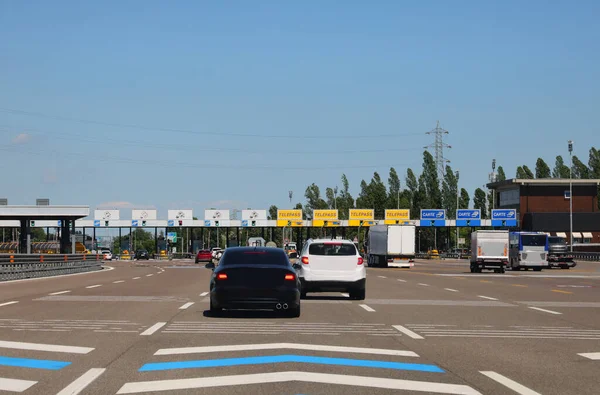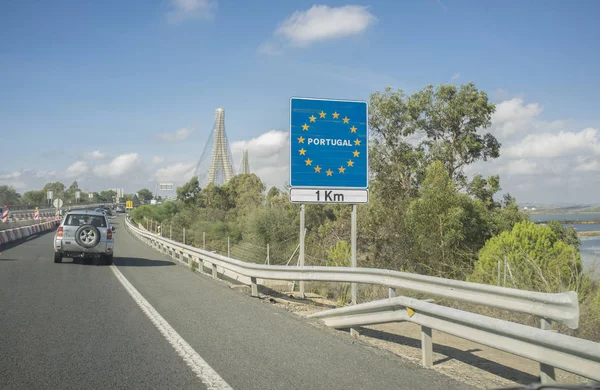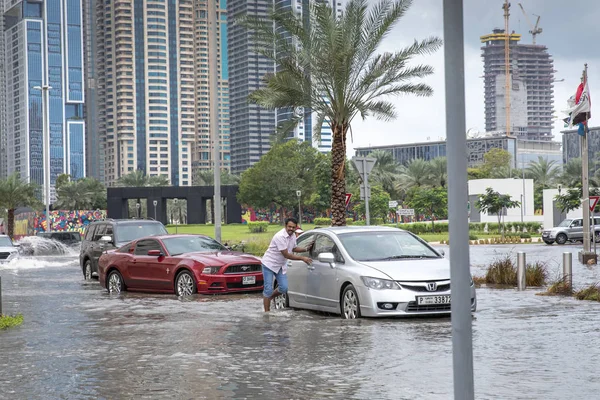Rental car companies have perfected the art of turning a simple car pickup into an expensive insurance maze. These businesses know travelers are tired, stressed, and often unfamiliar with local laws, making them perfect targets for unnecessary coverage upgrades and misleading policies.
The rental counter represents the final frontier where your vacation budget can take an unexpected hit. Here’s a list of 16 rental car insurance scams that prey on unsuspecting travelers around the globe.
The Double Coverage Trap

Rental agents routinely push collision damage waivers even when your personal auto insurance or credit card already provides coverage. They’ll create urgency by mentioning ‘foreign country complications’ or ‘different legal systems’ that supposedly make your existing coverage worthless.
Most major credit cards offer primary rental coverage internationally, yet agents conveniently forget to mention this detail. The markup on these waivers can reach 300% of the actual insurance cost.
Pre-Existing Damage Documentation

Some locations deliberately skip the thorough vehicle inspection process, hoping you’ll miss existing scratches, dents, or interior damage. When you return the car, these ‘new’ damages become your financial responsibility, often at inflated repair costs. European locations particularly excel at this technique, charging premium rates for minor cosmetic issues.
Smart travelers photograph every angle of their rental before leaving the lot, but companies bank on most people skipping this step.
Like Travel Pug’s content? Follow us on MSN.
The Fuel Tank Shuffle

Certain rental companies offer ‘convenient’ prepaid fuel options at rates significantly higher than local gas stations. They’ll present this as a time-saving service while quietly charging 20–50% above market rates for gasoline.
The real scam emerges when they don’t provide refunds for unused fuel, keeping your money regardless of how much gas remains in the tank. Australian and Canadian locations frequently use this tactic on tourists unfamiliar with local fuel costs.
Phantom Tolls and Fees

Electronic toll systems create perfect opportunities for rental companies to impose administrative fees that dwarf the actual toll costs. They’ll charge $15–25 in processing fees for each $2 toll you incur, turning a short highway trip into an expensive lesson.
Some companies automatically enroll vehicles in toll programs without customer consent and then bill these inflated charges weeks after your trip ends. The fees often exceed the rental cost itself for short-term rentals.
Bogus Cleaning Charges

Interior cleaning fees represent one of the most subjective scams in the rental industry. Companies define ‘excessive cleaning’ broadly, charging hundreds for situations that normal vehicle use creates.
Sand from beach trips, minor food crumbs, or even pet hair can trigger these fees, despite no actual professional cleaning taking place. Mexican resort locations particularly excel at this scam, knowing tourists have limited recourse once they’ve returned home.
Like Travel Pug’s content? Follow us on MSN.
Insurance Intimidation Tactics

Rental agents receive commission bonuses for insurance sales, creating strong incentives to use fear-based selling techniques. They’ll describe worst-case accident scenarios in graphic detail, emphasizing financial ruin without their premium coverage.
Counter staff often claim local courts favor rental companies over tourists, making insurance ‘essential’ for legal protection. These pressure tactics work especially well on first-time international travelers who lack experience with foreign rental procedures.
The Upgrade Bait and Switch

Companies advertise low base rates for economy vehicles, then claim none are available at pickup time. They’ll offer ‘free’ upgrades to larger vehicles that require more expensive insurance coverage, turning your budget rental into a premium experience.
The upgraded vehicle often comes with mandatory insurance packages that weren’t included in your original booking. This technique is particularly common at busy airports where travelers feel pressured to accept any available option.
Mileage Manipulation

Unlimited mileage rentals sometimes aren’t actually unlimited, despite advertising claims to the contrary. Companies impose geographic restrictions or daily limits buried in contract fine print, then charge excessive per-mile fees for overages.
Some locations reset odometers or use different measurement standards to inflate mileage calculations. Eastern European rental companies frequently employ this technique on tourists planning extensive road trips.
Like Travel Pug’s content? Follow us on MSN.
Emergency Roadside Assistance Scams

Rental companies often include mandatory roadside assistance fees in their contracts, charging $10–20 per day for services that may never be needed. These programs typically provide the same services available through auto clubs at a fraction of the cost.
The real scam involves companies providing slow or inadequate roadside service while keeping your daily fees regardless of service quality. Many credit cards already include emergency roadside assistance for rental vehicles.
Cross-Border Insurance Complications

International travelers face complex insurance requirements when crossing borders, creating opportunities for rental companies to oversell coverage. Agents will claim your insurance becomes invalid the moment you enter neighboring countries, requiring expensive international policies.
Many standard rental agreements already include cross-border coverage, but counter staff conveniently omit this information. Canadian and US border crossings generate particularly high profits from these unnecessary insurance upgrades.
Equipment Rental Markups

GPS units, child safety seats, and Wi-Fi hotspots carry astronomical markup rates at rental counters. Companies charge daily rates for equipment that costs less to purchase outright, knowing travelers need these items immediately.
A GPS unit that retails for $100 might cost $15 per day to rent, meaning a two-week trip equals the purchase price. Ski equipment rentals in Alpine regions particularly exploit this captive market situation.
Like Travel Pug’s content? Follow us on MSN.
Return Inspection Theater

Some locations conduct deliberately slow return inspections, creating artificial time pressure that prevents thorough damage documentation. They’ll discover ‘new’ damage during post-return inspections when customers have already left the premises.
These inspections often occur in poor lighting conditions or focus on vehicle areas that normal use couldn’t reasonably damage. The resulting charges arrive weeks later with professional-looking damage reports that seem legitimate but document pre-existing issues.
Administrative Fee Proliferation

Beyond the base rental rate, companies impose numerous administrative fees that serve no actual purpose except profit generation. Processing fees, documentation fees, facility charges, and technology surcharges can add $50–100 to your bill without providing any tangible service.
These fees multiply quickly on short-term rentals, sometimes doubling the advertised daily rate. Airport locations excel at fee proliferation, knowing travelers have limited alternative transportation options.
Seasonal Insurance Requirements

Tourist destinations impose ‘seasonal’ insurance requirements during peak travel periods, claiming increased accident risks justify mandatory coverage upgrades. These seasonal policies often cost more than the rental itself while providing minimal additional protection.
Ski resorts and beach destinations particularly favor this approach, knowing visitors have already committed to expensive vacation plans. The seasonal requirements rarely correspond to actual statistical risk increases.
Like Travel Pug’s content? Follow us on MSN.
Third-Party Liability Confusion

International rental agreements often exclude third-party liability coverage, requiring separate, expensive policies to protect against claims from other drivers. Rental agents present this as a mandatory legal requirement while failing to mention that travelers’ existing insurance might already provide international coverage.
The liability policies they sell often include massive deductibles and coverage limitations that make them essentially worthless. European locations frequently exploit American tourists’ unfamiliarity with different insurance systems.
Contract Modification Tactics

Rental companies sometimes modify contract terms at the pickup counter, claiming that ‘system updates’ or ‘new regulations’ require additional insurance purchases. These last-minute changes prevent customers from comparing alternatives or walking away from the transaction.
Counter agents often claim they lack the authority to honor original booking terms without insurance upgrades. The modifications typically favor company profits while reducing customer protections that were included in the original agreement.
Modern Travelers Fight Back

Today’s rental customers have more tools than ever to combat these insurance scams through smartphone apps, online reviews, and social media exposure. Credit card companies increasingly offer primary rental coverage specifically designed to eliminate rental counter insurance pressure.
Travel forums and review sites create accountability that forces rental companies to address the most egregious scam practices or face public backlash that damages their reputation permanently.
Like Travel Pug’s content? Follow us on MSN.
More from Travel Pug

- 20 Best Beach Towns in the Carolinas
- 13 Destinations Where Tourists Regularly Regret Their Trip
- 20 Things You Actually Get in First Class
- 20 Small Airports With Aviation Museums
- 20 Places in the U.S. That Are Perfect for a Reset Trip
Like Travel Pug’s content? Follow us on MSN.
